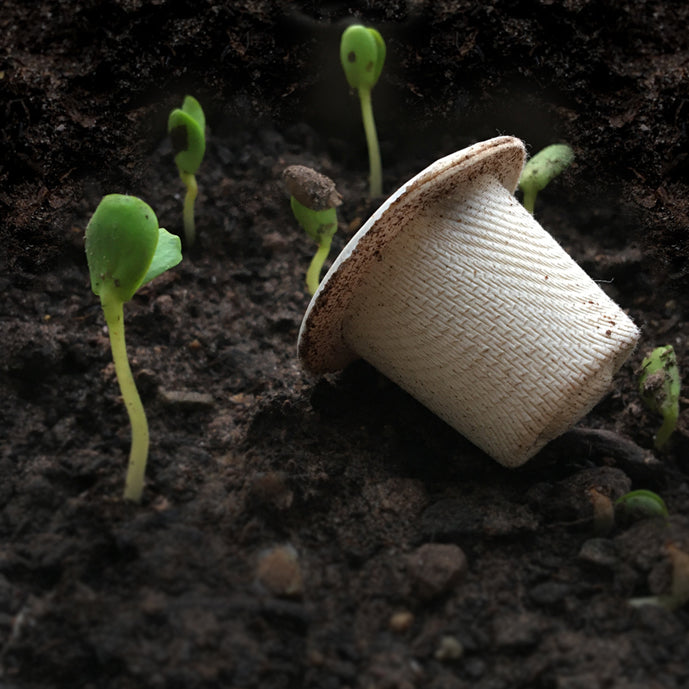ENJOY 20% OFF YOUR FIRST THREE SUBSCRIPTION ORDERS

Coffee Sustainability
Can Coffee Sustainability Save and Grow the Industry Simultaneously?
Ask anyone who is concerned about sustainability and the environment whether they think that people should reduce their consumption levels and try to find ways to address their carbon footprint, and the answer will be a resounding yes. The reality, however, is much harder, because people don’t want to let go of their tastes, change their diets, or adjust their transport habits.
For the coffee industry, coffee sustainability has presented a united front, whereby consumers can enjoy more thoughtful coffee with lower emissions and negative impacts, and producers can benefit from a conscious market share that allows them to divert funding into more coffee cleantech and improvements on their coffee farms. Supermarkets get better quality products, and farmers receive more care and investment. Everyone’s a winner.
As we explored in this article in November, coffee-growing operations are seriously threatened by climate change. In a worst-case scenario, the farms can’t grow, the bean prices rise, and ultimately the common coffee drinker gets priced out of coffee until the industry more or less collapses. Nobody wants that to happen. We need our caffeine!
In this article, we want to present the idea that coffee sustainability could be both a saviour and a catalyst for an industry navigating some very immediate challenges.
Sustainable by association
Coffee sustainability, either as a concept or a movement, is undeniably gaining momentum. Sustainable packaging options to house our coffee have been well received and now it’s normal to see people carrying reusable mugs, or to see cafe’s offering their own sustainable alternative or even discounts for those who have their own cup. Cow’s milk has been proven to be an environmental nightmare, as we discussed in this article, and public knowledge of this has helped many people switch over to plant-based milk, which has had the knock-on effect of boosting coffee sustainability.
As more coffee drinkers begin to switch their milk (or go without) and use reusable cups (and avoid disposables), we can begin to see how the coffee industry’s carbon emissions could be scaled down as the solutions scale up.
Sustainability has become a priority purchasing decision
A recent study by Tastewise found that a staggering 23% of US consumers made sustainability their number one priority whilst shopping for food and drinks. That’s an impressive figure that will send shockwaves throughout the food and drink industry and not least the coffee industry.
Those businesses already embracing coffee sustainability are benefitting from evolutions to consumer spending habits and if this trend becomes the norm, things will be looking very good! With health (39%) being the top purchasing decision in the survey, there are further opportunities to marry sustainability with health (which is also partly responsible for the rise in sustainable milk alternatives)…
Changing tastes, changing world
For many who claim that they don’t like coffee, there is the possibility that they haven’t yet found the right coffee for them. Many students get into the habit of drinking coffee as the pressures of study heap on them and find that they quickly get accustomed to the taste. With the current crop of students being the Gen Z generation, who are reportedly the most sustainable and curious so far, there are going to be more ethical and sustainable questions about coffee and the milk raised. A sustainably sourced coffee with low-carbon and cruelty-free alternative milk suddenly sounds quite attractive for a Gen Z youth.
It’s not only young people whose tastes are changing. People, in general, are becoming a lot more interested in where coffee is grown, how it’s sourced, how the farmers are treated, and whether sustainable farming practices are applied. Transparency on these issues is improving and those companies who can offer insight are appealing to the tastes of an overall more curious modern coffee drinker. Purists may not like it, but in the last few years, baristas have embraced a more diverse selection of plant-based milk and used that to inspire what can be done with coffee beans, for everyone’s benefit.
Pressure from consumers is vital
Look again at the title of this article, ‘Can Coffee Sustainability Save and Grow the Industry Simultaneously?’ and ask ‘Well, isn’t it already?’. It’s certainly trying, and that’s largely due in part from consumers who pressure the food and drinks industry, whether directly through activism or indirectly by changing their purchasing habits. With consumers asking more thought-provoking questions about coffee, and transparency becoming so valuable, major coffee producers are forced to direct funds into sustainability projects, CSR, and making sure their farms are well looked after.
What trends can we expect to see in 2020?
There are three areas that coffee sustainability is starting to address, with the first being the packaging issue for beans. Supermarkets are trying to solve this by buying larger bags of beans and installing refill stations for customers. This will take quite a long time for people to adjust to, but the idea is right.
Secondly, there is a huge potential for Blockchain technology to come in and update parts of the coffee industry that might be neglected, outdated, or present a huge opportunity. Crypto-innovators are already looking at ways to converge the ideas of coffee sustainability and encrypted tech. Thirdly, researchers in Oregon have found that we’ve been making espresso shots all wrong, and that if we can adapt our behaviours, we can make better shots that are also better for the planet!
Conclusion
There’s good news emanating from various parts of the industry, which is very positive and pleasing to see. However, before we get carried away, we must be realistic in our optimism. Coffee farmers are facing a very real threat from climate change, the dairy industry is not cruelty-free and will continue to be challenged, there’s a huge transport emission figure associated with coffee that is not being addressed, and almost all coffee creates waste for the landfill somehow… almost all.
